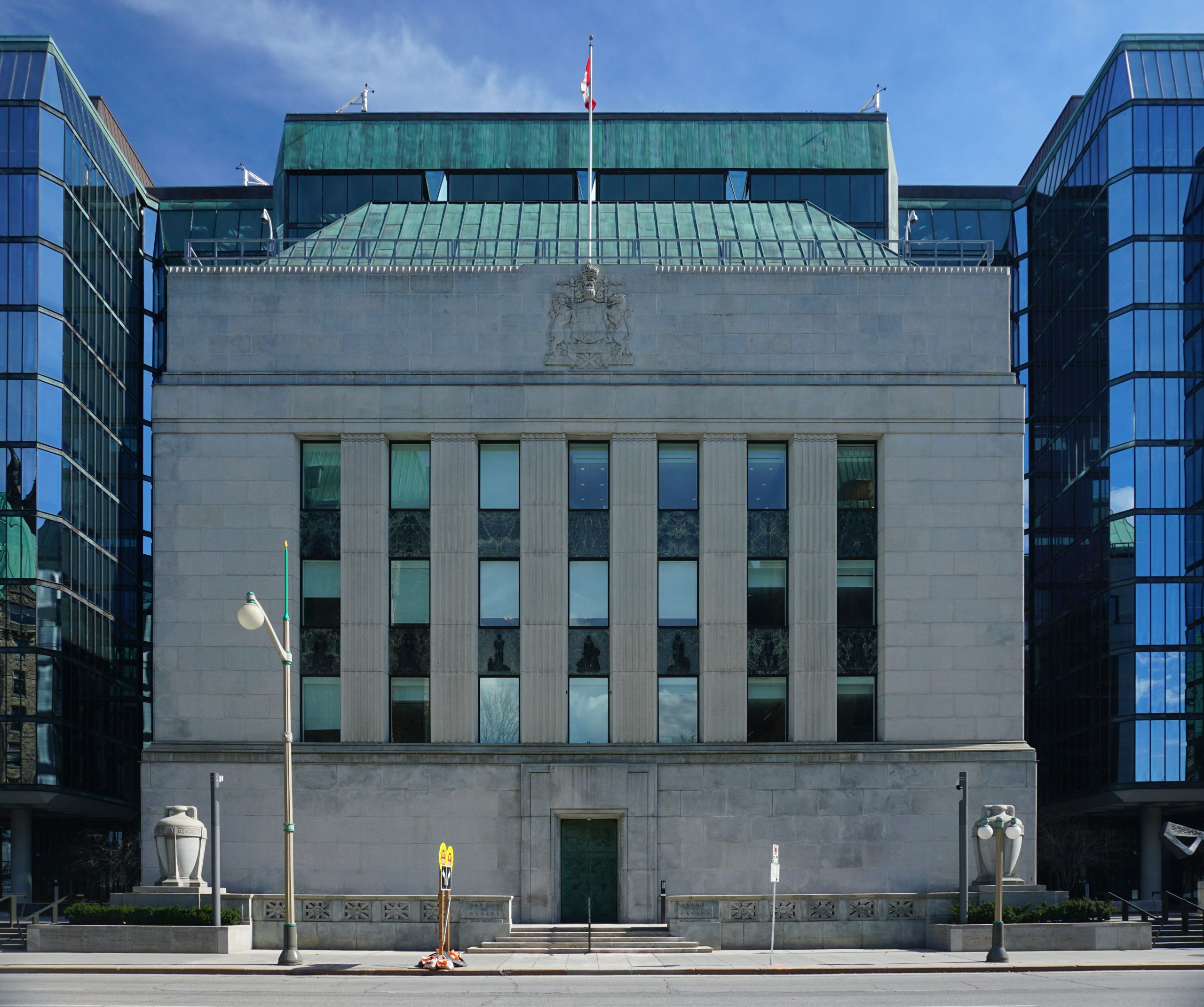It is taking a while, but a prolonged period of elevated interest rates, at both the short end set by the Bank of Canada and the Federal Reserve Board of the United States, and at the long end in the bond market set by domestic and foreign investors, is coming to be recognized as ‘the new normal’. This should not surprise anyone other than the financial community, which was complacent, convinced of its own ‘genius’ by a historically unprecedented forty-year long decline in interest rates.
Historically, short term rates have usually been slightly above the current inflation rate, while longer term rates have a fluctuating ‘term premium’ of least a few basis points (a basis point is one-one hundredth of a percentage point) per year for every year to maturity. The recent period of ‘ever-declining’ interest rates (with occasional spikes) of 1981-2021 was an aberration – unlikely to be repeated. Now, not just financial types, actual business people are adjusting to the new regime by slowing spending.
At first, this may seem to be quite negative for both economic growth and future prosperity. After all Canada’s capital investment is already much lower as a share of the nation’s Gross Domestic Product, ‘GDP’, than that of other member nations of the Organization for Economic Cooperation and Development – ‘OECD’. So, also, and as a consequence, Canada’s productivity growth fell, now ranking at the bottom of the OECD.
This is important, as productivity growth must be significant to enable companies to pay employees enough to beat consumer price increases, thus increasing living standards. Canada’s low productivity rise since 2015 is causing stagnation. Recent figures show Canada’s GDP now falling into a recession.
Over the long term the expected return on investment in a business, in its ‘equity’, is, in financial economics, equal to the growth in net income or free cash flow. This expected return should over time equal the cost of capital needed to invest in a business. One measure of it is the ‘earnings yield’ of the stock market, and is the inverse of the more familiar price-earnings ratio. For example, an Exchange Traded Fund based on the Toronto Stock Exchange-S&P60 Index of the sixty largest publicly traded companies in Canada has a P/E ratio of 13.46, for an earnings yield of 7.4%.
Theoretically any company embarking capital spending now should aim for a return of at least 7.4%. If they issued treasury shares to obtain the funds for a project, the cost would be about 7.4%. Bank loans or bond interest costs to pay for expansion or improvements would be in a range between more than the government’s cost of just over 3% for long term borrowing and 7.4%. Debt seniority in the repayment hierarchy and firm creditworthiness determine the final rate.
Although firms face higher capital costs, and the real estate and construction industries are already hurting as a result, the quality of their projects that proceed is just as important as the overall quantity. The ones in the ‘cheap money’ era obviously were not of sufficient quality to improve productivity and growth. This new era of more expensive capital will force firms, and governments, to invest more wisely, attaining better results.
Ian Madsen is the Senior Policy Analyst at the Frontier Centre for Public Policy



